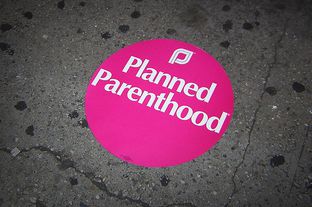The Future of the Women’s Health Program in Texas
The end is near for the Women’s Health Program. Federal funding will dry up Dec. 31 and that’s it for the program. State officials say the Texas Women’s Health Program, funded solely by the state, is ready to replace it, but don’t count that chicken just yet: A lawsuit filed by Planned Parenthood might stand in the way.
Despite the hype, it's unlikely Planned Parenthood's lawsuit could really prevent the state from implementing the Texas WHP.
The Women’s Health Program provides cancer screenings, treatment and testing for sexually transmitted diseases, contraception and other health services — excluding abortions — for about 130,000 low-income Texas women who would qualify for Medicaid if they became pregnant. The goal of the program is to reduce unintended pregnancies and abortions and save the state Medicaid money, and according to some studies, it has succeeded at that.
But the Women’s Health Program in Texas has been under siege. In the 2011 legislative session, state legislators passed a law requiring the Health and Human Services Commission to ban medical providers “affiliated” with abortion providers from participating in the Women’s Health Program. The federal government told Texas it would stop providing the federal matching funds — $9 in federal funds for every $1 in state funds — for the program if the state implemented the so-called Affiliate Ban Rule. In response, Gov. Rick Perry pledged to forgo the federal funding — roughly $30 million annually — and set up a state-funded version of the program called the Texas Women’s Health Program.
Meanwhile, Planned Parenthood filed a lawsuit challenging the constitutionality of the Affiliate Ban Rule in federal court. They lost and a panel of three federal judges on the 5th Circuit Court of Appeals refused to rehear the case. The stage was set for Texas to launch the Texas Women’s Health Program this month, but like Perry, Planned Parenthood didn’t back down. The organization filed another lawsuit in Travis County arguing state law renders inoperative any WHP rule, including the Affiliate Ban Rule, if it causes the state to lose federal funding. A state judge granted Planned Parenthood a temporary injunction to continue providing services through the Women’s Health Program until a full trial can be held in December.
“The latest Planned Parenthood case also challenges the state’s authority to use only state-funding for the program,” said Stephanie Goodman, spokeswoman for HHSC, confirming the state plans to launch the Texas WHP on Jan. 1, when federal funds are cut off. “Of course, that’s assuming that we don’t have a court order that would prevent us from continuing to deliver services through a state program,” she said in an email.
But Sarah Wheat, who runs Planned Parenthood’s operations in Central Texas , doesn't think the current lawsuit could impact the state’s ability to implement the Texas WHP because it is focused on federal funding. “There’s just too many questions to say for sure what we expect next,” she said. No matter what happens, she said, Planned Parenthood’s mission is unchanged: “Our doors will stay open.”
If the organization succeeds with its legal challenges, Perry said last month, Planned Parenthood “will kill this program, and they will be responsible for denying these important health services to low income women today.” Catherine Frazier, his press secretary, explained there’s a severability clause in the Texas Women’s Health Program that would force the state to dissolve it entirely if Planned Parenthood successfully convinces a court to overturn the Affiliate Ban Rule in the state’s version of the program.
“We believe the program is important, but we also believe life is important. And Texas lawmakers have — speaking for the people of Texas — determined that we do not want to be funding abortion providers or their affiliates in Texas," said Frazier.
She said the governor would like to continue the federal program, but only if the state is allowed to ban providers it deems unfit because of their affiliations with abortion providers.
In combination with the cuts to family planning funds last legislative session — to $37 million from $111 million for the 2012-13 biennium — outside research experts expect the loss of Planned Parenthood as a provider in the WHP to have devastating consequences on access to care.
“Texas overall is underserved, rural and poorer parts of Texas are especially underserved,” said Joseph Potter, a researcher at the University of Texas conducting a three-year study on the impact of the state cuts to family planning grants. His initial research found 53 clinics have already closed as a result of the funding cuts. “So there isn’t this large base of providers with space in their practices that is there ready, willing and able to take on this client base,” he said.
Regardless of how the state’s decision to ban certain providers affects access to care in the short term, if the Texas Legislature approves funding for only the state-funded version of the program, the money will probably be there to attract new providers to the program, as Perry and friends suggests it will.
HHSC estimates the Texas WHP will have a positive net impact on the budget. For a cost of $43 million in fiscal year 2014, they expect to save $46 million.


